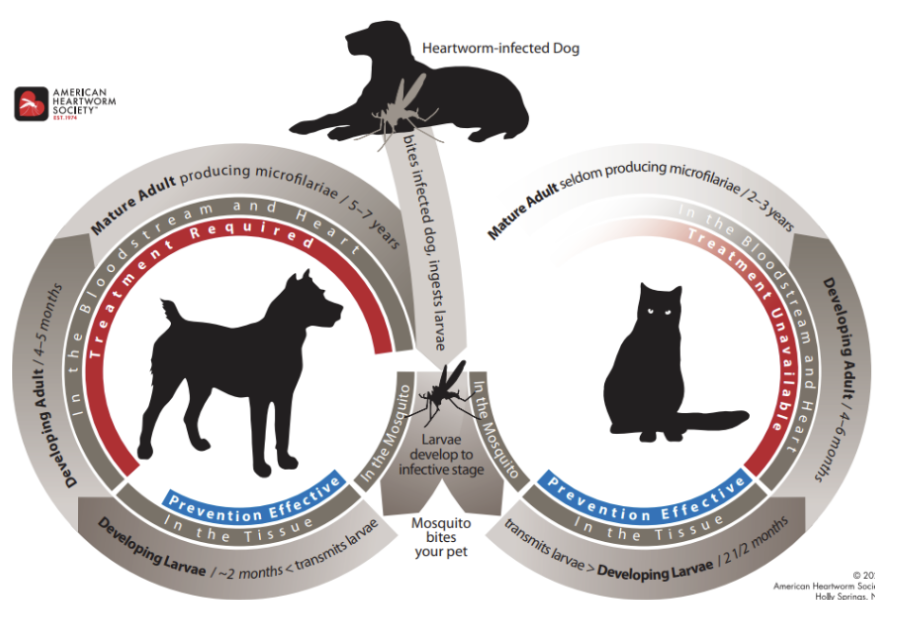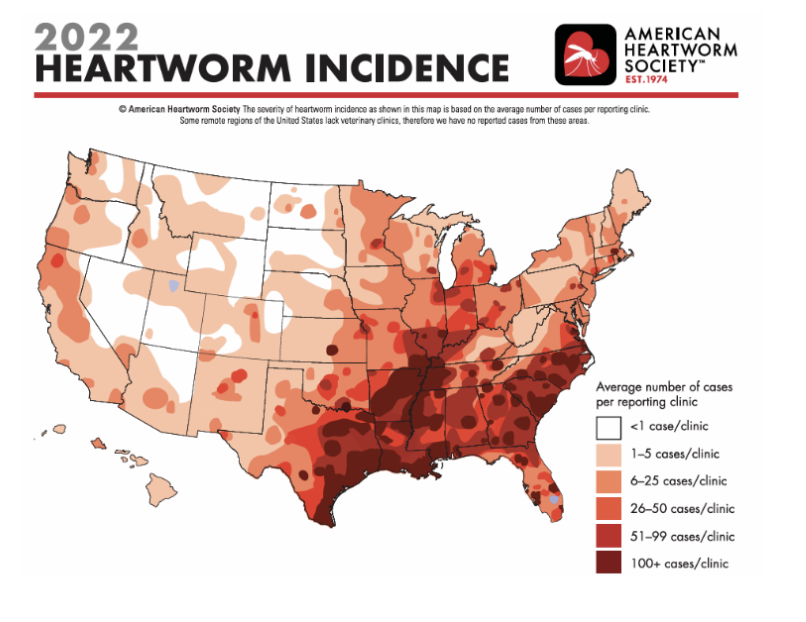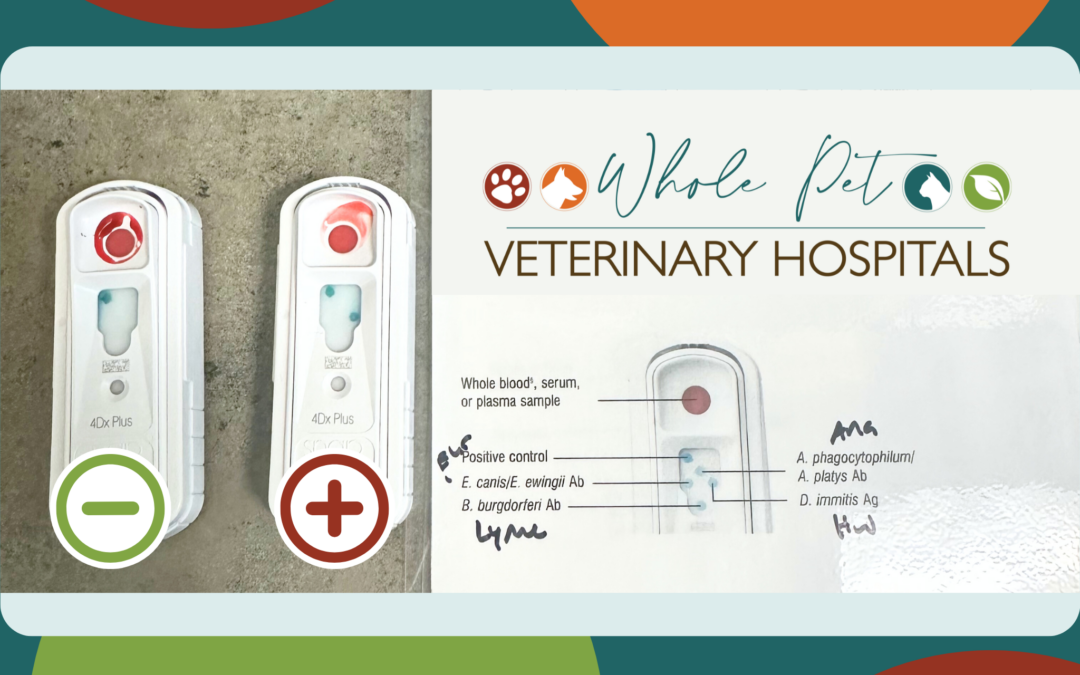One very important part of discussing heartworm infection is that it can be prevented completely. The most common form of this is through a monthly soft chew or chewable tablet that most pets like and take as a treat! The preventative medications (Heartgard, Interceptor, Sentinel) only work on larval stages of the worm by preventing them from maturing into adults. However, they must be administered regularly, missing doses can leave a dog vulnerable to infection no matter how long they have been receiving the preventative before. I know for myself, remembering to give the monthly chewable for my pet does not always happen. So, I really like Proheart for prevention. It is a once a year injection done at the time of the annual exam and provides heartworm protection for the entire year! Not only are heartworm preventatives safe and effective, but the product manufacturers are so confident and stand behind their product so much so that if any pet with invoice history of continuous prevention tests positive for heartworm disease, the product manufacturer will reimburse and pay for most if not all of the costs associated with treatment. The total cost of heartworm treatment can be upwards of $1000 or more while the prevention is on average around $15 per month. Prevention is significantly more cost effective and many of the preventions also help to prevent other parasitic infections as well! Environmental control of mosquitoes is another great way to help reduce the spread of heartworm disease to protect not only your pets but also the other animals that are at risk.
Heartworm disease left untreated is fatal long term. Dogs will die from heart failure or a thromboembolism. While treatment can be long, expensive, and painful for the pet, it is often the best course of action with heartworm infections. Obviously, this is only advised for our patients without significant disease or other concurrent diseases where the risk outweighs the reward. Once a dog does become infected, the treatment process involves a series of injections that kill the adult worms. During treatment, strict rest is essential, as physical activity can increase the risk of complications from dead or dying worms. Even with treatment, some damage to the heart and lungs may be irreversible. The damage present is related directly to how long the parasite has been there. The test for heartworms is fast, easy, and only requires a couple drops of blood. Annual testing for heartworms is recommended, even for dogs on preventive medication.
By combining regular preventive medication, environmental management, and veterinary care, you can significantly reduce the risk of heartworm disease in your dog and ensure they lead a healthy, happy life. Remember, prevention is always easier and more cost-effective than treatment, so taking proactive steps is the best way to protect your beloved pet from this serious disease.



